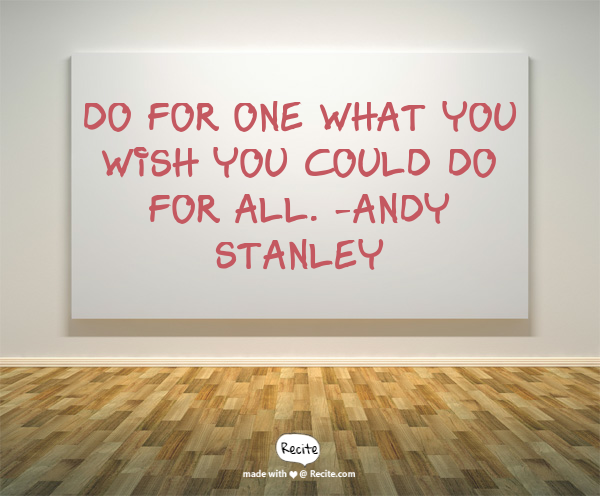Do For One What You Wish You Could Do For Everyone [Guest Post]
Today I’m bringing you a guest post from Heidi, whose blogs at Smart Mouth SLP.

“Do for one what you wish you could do for everyone” is one of my favorite quotes from Andy Stanley, my church pastor. The message was delivered during a series on community service, but it’s just as apt for the students we serve. Working with students with social communication disorders can be time-consuming and frustrating, as therapists and teachers. To watch your student fall into the same emotional minefield even after reading social stories, making visuals, implementing behavior reinforcement systems in the classroom and working on multiple sessions of practice, can be disheartening to say the least. My heart hurts for them as they are often their own worst enemy.
I had the chance to set up a social communication program for a fifth grade student who was struggling socially and academically, because they could not work with their peers at all and constantly argued with their teachers. The student could, outside of the moment, tell me exactly what he should have done or said, but just couldn’t translate it into real-time. The emotionality of the situation seemed to erase all of the strategies we had been working on over the year. He was tired and frustrated, as were his teachers, peers and parents. We had a session that ended up being just him and me after a particularly difficult week. “I know what I need to do, I just can’t make my brain do it. I know everyone is always mad at me. I don’t want to be this way, I just don’t know how to change. Are you going to kick me out of speech?”
My eyes filled with tears, but I pulled it together before reassuring him that no, of course I wouldn’t kick him out of speech. I was there for him, and we would just keep working on ways for him to learn to survive (and even flourish) in a confusing social world. Did he magically become a social whiz that year? No, but he did make a friend who had lunch with him and hung out on the playground. I count that as huge success. I still get emails from his mom once in a while letting me know how he is doing.
I see more and more students struggling with the impact of social communication impairments. Our society is affected by isolating technology and unbelievable social pressure, a combination that is wreaking havoc with our kids. My heart is absolutely drawn to those who don’t quite fit in and those that stand out. As SLPs, our fatal flaw is that we want to fix all of the kids we work with, every last one. It’s one of our best and most frustrating qualities, but it’s not realistic. What I can do is work my hardest for those I can reach, and do for one what I wish I could do for everyone.


i enjoyed reading this and it was exactly what I needed to hear this week. I’m working with a high school student who this describes pretty well.
Thank you for reading!